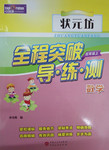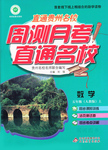题目内容
| |||||||||||||||||||||||||||||||||||||||||||||||||||||||||||||||||||||||||

 状元坊全程突破导练测系列答案
状元坊全程突破导练测系列答案 直通贵州名校周测月考直通名校系列答案
直通贵州名校周测月考直通名校系列答案Directions: Read the following passage. Fill in the numbered blankets by using the information from the passage. Write NO MORE THAN THREE WORDS for each answer.
Like our body, our memory needs regular exercise to be in good condition. Like the sportsman who must train to allow the body to respond to difficult times, the memory needs its own special training in order to stay in “shape” and improve.
There are many factors that can cause poor memory like insomnia (失眠), depression and alcohol. However, there are simple ways which you can follow to keep your memory in shape and actually help you to improve your memory’s condition and performance.
Never stop learning. Look for topics that interest you and really get involved in learning new information about them. Reading and attending lectures or programs are sources of continuous education of your brain with beneficial results to your memory.
Develop your social and family relationships. The more social you are, the better it is for your brain. Studies have shown that the brain and heart have a lot to gain from good family and social relationships.
Exercise your mind with games. The more you use your brain, the more you help your memory stay in shape. There are many games that can make you an intelligent person as well as entertain you such as chess, puzzles and board games.
Exercise physically can improve your memory. This type of exercise improves the circulatory (血液循环的) system. Even the simple but regular daily exercise such as fast walking can improve the heart and oxygenation(供氧) of the brain. The benefits of exercise affect positively many body systems, as well as our memory and other cognitive(认知的) capabilities.
Eat more fruit and vegetables. What we eat every day affects the performance and long-term condition of our memory. Fruit and vegetables are an excellent source of antioxidants(抗氧化剂) and vitamins that can help and benefit the nervous system.
So our memory is like a sportsman. The more we practice our brains and memory, the better their performance will be.
Title: How to improve memory
|
Topic |
1. like insomnia, depression and alcohol can lead to poor memory. We should exercise 2. to keep memory in good condition. |
|
|
Ways to improve memory |
Never stop learning |
3. like reading and attending lectures or programs does good to your memory. |
|
Develop social and family relationships |
Good family and social relationships are beneficial to your brain and contribute to 4. as well. |
|
|
Exercise mind with games |
Play chess, puzzles or board games, which is of great benefit to your intelligence and also offers you5. . |
|
|
Take6. exercise |
Physical exercise improves the 7. of the brain, which leads to better memory. |
|
|
Eat more fruit and vegetables. |
Fruit and vegetables are 8. in antioxidants and vitamins that can help and benefit the nervous system. |
|
|
9. |
If we practice brains and memory more, they will 10. . |
The concept of health holds different meanings for different people and groups. These meanings have also changed over time. This change is no more evident than in Western society today, when notions of health and health promotion are being challenged and expanded in new ways.
For much of recent Western history, health has been viewed in the physical sense only. That is, good health has been connected to the smooth mechanical operation of the body, while ill health has been attributed to a breakdown in this machine. Health in this sense has been defined as the absence of disease or illness and is seen in medical terms.
In the late 1940s the World Health Organization challenged this physically and medically oriented (导向的) view of health. They stated that health is a complete state of physical, mental and social well-being and is not merely the absence of disease (WHO, 1946). Health and the person were seen more holistically (mind / body / spirit) and not just in physical terms.
The 1970s was a time of focusing on the prevention of disease and illness by emphasizing the importance of the lifestyle and behaviour of the individual. Specific behaviours which were seen to increase risk of disease, such as smoking, lack of fitness and unhealthy eating habits, were targeted. Creating health meant providing not only medical health care, but also health promotion programs and policies which would help people maintain healthy behaviours and lifestyles. While this individualistic healthy lifestyle approach to health worked for some (the wealthy members of society), it was of little benefit to people experiencing poverty, unemployment, underemployment or who had little control over the conditions of their daily life.
During the 1980s and 1990s there has been a growing swing away from seeing lifestyle risks as the root cause of poor health. While lifestyle factors still remain important, health is being viewed also in terms of the social, economic and environmental contexts in which people live. This broad approach to health is called the socio-ecological view of health.
At the Ottawa Conference in 1986, a charter was developed which outlined new directions for health promotion based on the socio-ecological view of health. This charter, known as the Ottawa Charter for Health Promotion, remains as the backbone of health action today. In exploring the scope of health promotion it states that:
Good health is a major resource for social, economic and personal development and an important dimension (尺度) of the quality of life. Political, economic, social, cultural, environmental, behavioural and biological factors can all favour health or be harmful to it. (WHO, 1986)
1.From the passage, we can infer that _________.
|
A.good health means not having any illness |
|
B.health has different meanings for different people in different periods |
|
C.health has always been viewed in terms of the social, economic and environmental contexts in which people live |
|
D.health has always been considered a major resource for social, economic and personal development and an important dimension of quality of life |
2.In the late 1940s, if you ___________, that meant you were healthy.
|
A.were strong enough |
|
B.were strong, optimistic and happy |
|
C.had enough money |
|
D.had a good lifestyle |
3. of society benefited most from the healthy lifestyle approach to health.
|
A.Rich people |
B.Poor people |
|
C.Old people |
D.Young people |
4.The socio-ecological view of health includes the following broad areas EXCEPT ________.
|
A.the social contexts |
|
B.the environmental contexts |
|
C.the economic contexts |
|
D.the area of personal development |
5.This passage mainly tells us that .
|
A.wealth is health |
|
B.health means different things in different periods |
|
C.it’s getting harder to be healthy |
|
D.people should change their understanding of health over time |
---How did you do in the test yesterday?
-----Not so well. I ______ much better but I misread the directions for writing。
|
A.will have done |
B.could have done |
|
C.must have done |
D.may have done |
Directions: Read the following passage. Complete the diagram by using the information from the passage.
Write NO MORE THAN THREE WORDS for each answer.
As we all know, all the governments in the world collect taxes(税), but what are they and what are they used for? Some people may not know about them.
There are two kinds of taxes. One of the most important taxes is income-taxes which a person pays according to the amount of his income. Whatever he is, he must pay tax if income is more than a certain amount. This is called a “direct” tax, because it is paid in money directly to the government.
Another tax is paid on goods. When they are brought into a country, such a tax is paid as part of the price of these goods if they are later sold in shops. We call it “indirect” tax, because it is paid indirectly through the shopkeepers.
People usually complain about having to pay taxes, but they forget that the money is spent on what they need. On one hand, we need policemen and soldiers to protect us from danger. Meanwhile, we also need schools and teachers for our children. On the other hand, we need officials and workers to serve us. Above all, we need money to develop our nation.
Taxes, therefore, can’t be avoided. We have no real reason to complain when we are asked to supply money to be spent for the good of ourselves and for our fellow-citizens.
Title: 1. are necessary in our life
|
Sources |
People→Taxes |
_2.__of taxes |
Tax-payers |
|
3. |
People whose income is over a certain amount |
||
|
Indirect tax |
___4.__ |
||
|
5. |
Taxes→ 6. |
On safety— 7. |
|
|
On education— 8. |
|||
|
9. —Officials and workers |
|||
|
On development— 10. |